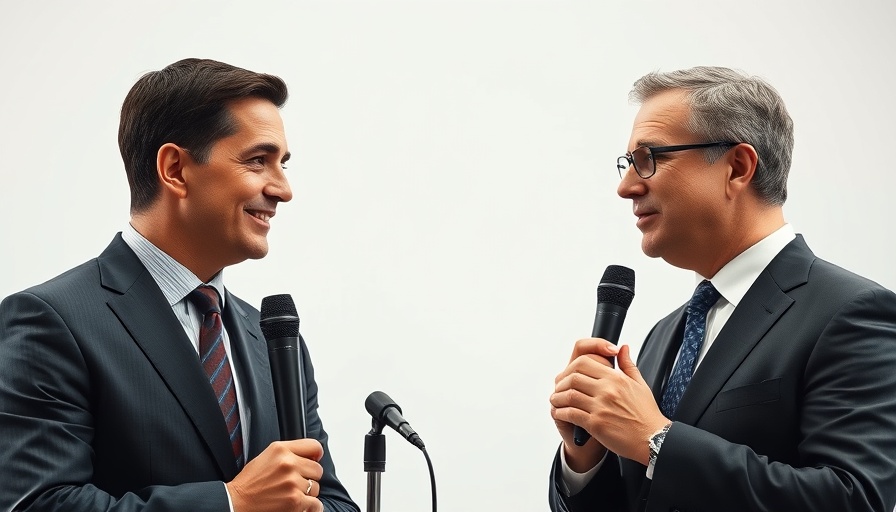
Malawi's 2025 Election: A Crucial Moment for Economic Recovery
As Malawi gears up for its presidential election on September 16, 2025, voices from the diaspora paint a vivid picture of the sentiments among its citizens living abroad. Many Malawians in South Africa are expressing their frustrations over economic difficulties at home, revealing how these challenges have shaped their political preferences. Interviews conducted in the streets of Johannesburg illustrate a longing for better leadership, particularly highlighting the candidacy of former president Peter Mutharika.
In 'Malawi Prepares for a Hotly Contested 2025 Presidential Election,' we explore the urgent economic concerns of Malawians abroad, shining a light on the key issues driving the upcoming ballot.
Why Malawians Abroad Are Worried
The economic landscape in Malawi has driven many to seek opportunities outside its borders, with substantial numbers now residing in South Africa. The testimonials shared by these expatriates reveal a common sentiment: dissatisfaction with the current government, led by President Lazarus Chakwera. The dire conditions back home—high unemployment rates, rampant inflation, and food shortages—elicited a palpable desperation for change.
One Malawian, identified only as "Potato," echoed the voices of many by stating, "I ran away from Malawi because the economy is so bad." This statement poignantly encapsulates the sentiments of a community straddling two worlds—one they feel nostalgic for and one where they seek to improve their lives.
Returning Leaders: A Double-Edged Sword
The prospect of electing former leaders like Peter Mutharika sparks fierce debate. While some view Mutharika as a stabilizing force who has historically managed economic crises better, others fear that returning to previous leadership may not guarantee progress. Various respondents showed support for Mutharika, one stating that during his tenure, things were "going well" in Malawi. Others, however, voiced concerns over the reliability of past politicians, showing cautious optimism towards potential change.
Health and Food Security: Urgent Priorities for the Incoming President
The challenges highlighted during these discussions emphasize pressing needs—improved healthcare and enhanced food security. With persistent issues such as hospital shortages and food scarcity dominating the landscape, the next president's ability to fortify these sectors may be paramount for electoral success. "There’s hunger; people are suffering in terms of food," expressed a concerned Malawian. This urgency hints that candidates will need concrete, actionable plans to address these critical challenges.
Electoral Sentiments: The Pulse of a Nation in Crisis
The voices of Malawians abroad serve as a barometer for the electoral climate back home. Many express anxiety over how their votes might reflect the reality of life in Malawi and the potential impact of leadership on their loved ones who still reside there. Since the currency has weakened and economic opportunities seem scarce, the question becomes whether any candidate can genuinely restore hope.
Further complicating the matter are the debates surrounding other candidates, including former president Joyce Banda, whose return also sparks mixed emotions. While some support her reinstatement, it’s clear that a significant portion of the population is yearning for someone like Mutharika, who they believe can foster an economy that effectively supports its citizens.
Conclusion: The Future of Malawi Hinges on This Election
This upcoming election is not merely a procedure of democracy; it’s a pivotal moment that could determine the future trajectory of Malawi. As we observe the unfolding drama of Malawian politics from afar, the real work will be understanding how these voices fit into the larger narrative of governmental change within the country. As the election day approaches, the diaspora’s opinions will inevitably contribute to the momentum of political discourse, urging all stakeholders to reflect on the tomorrow they want for Malawi.
In light of these discussions, it’s crucial to empower the Malawian voting population with the information they need to make informed choices. Engaging citizens to understand the implications of their votes will be pivotal in shaping a future that diverges from the hardships of their past.
 Add Row
Add Row  Add
Add 


Write A Comment